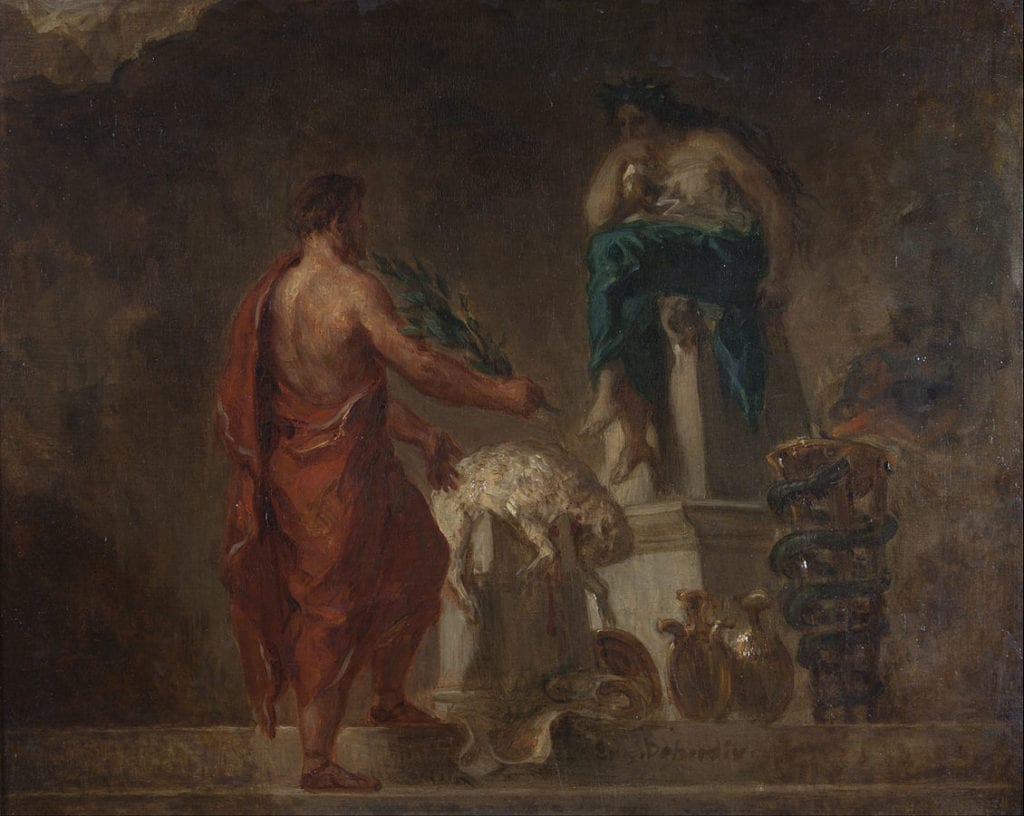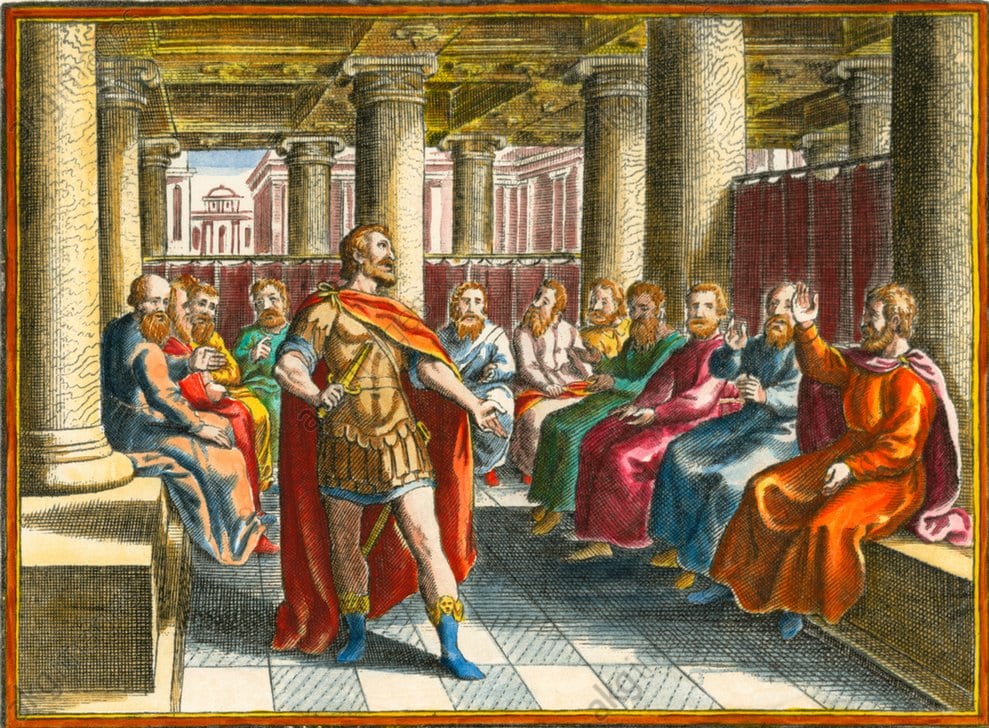By Jon Garaffa ’20
From where do we receive our laws and customs? To answer this question, Melissa Lane (Politics, The University Center for Human Values) turned to ancient Greek sources on Wednesday, March 3 over Zoom, lecturing in the Humanities Council’s Old Dominion Series as a 2020–21 Old Dominion Research Professor. Old Dominion Research Professorships help full professors in the humanities or humanistic social sciences engage the University community in extended discussions of their work.
Titled “Lycurgus, Solon, Charondas…Figuring the Legislator in Platonic Political Thought and its Aftermath,” Lane’s remarks investigated the historic perception of legislators. She argued that for the most part, the ancient Greeks, while exalting the status of lawgivers, saw them as not creating laws where none existed, but instead adapting earlier laws as building blocks. In the eyes of these Greek thinkers, including philosophers, orators, and historians, even the greatest Greek legislators were conceived as adopting the best practices from previous laws, often by writing down a selection of evolved customary laws.
This lecture marked the second of four Old Dominion lectures for 2020–21. As the 2022–23 Isaiah Berlin Lecturer at Oxford University, Lane used the presentation as a springboard for the six lectures she will give there in spring 2023. The format of a Zoom meeting, rather than a webinar, encouraged attendees to interact with the speaker and one another.
Lane spoke of Lycurgus, Solon, and Charondas, three ancient Greek lawgivers discussed in Book X of Plato’s Republic. Originating from Sparta, Athens, and Catania respectively, they gained the reputation of “founding” legislators, revered for their special role in crafting the legal norms of their civilizations.
“These legislators laid down fundamental laws that shaped the everyday practices, the way of life, of their constitution as a whole,” Lane said. “What interests me is that, in their elevation of the Greek legislators, the Greeks posit that it would misunderstand the project of legislation to imagine that it could be done from scratch.”
Lane contrasted her interpretation of the Greek view with the perspective of early modern philosophers, such as Friedrich Nietzsche and Jean-Jacques Rousseau. According to these more recent thinkers, legislators made legal norms ex nihilo, meaning from nothing.
The clash between these positions emerges in the case study of the religious figure Moses, whom the Bible portrays as the lawgiver and leader of the Israelites. While many ancient and religious scholars traditionally believed that Moses, in claiming his laws came directly from God, was communicating a divine law, some skeptical early modern thinkers suggested that he was merely employing the name of God in order to add weight to laws that he himself invented, Lane explained.
Despite believing that legislators like Moses devised their laws from scratch, Nietzsche so esteemed such ancient legislators that he saw them as role models for future philosophers. Nietzsche modeled his own character Zarathustra after leaders in antiquity like Moses, Plato, and the ancient Hindu lawgiver Manu.
Similarly, many ancient Greeks admired their legislators as godlike figures in their own right. Yet unlike early modern philosophers, the Greeks saw no tension in considering their lawgivers to have been simultaneously inspired by a divine source, Lane noted. She offered the illustration of Eugène Delacroix’s painting, “Lycurgus Consulting the Pythia,” which depicts Lycurgus receiving counsel from the Oracle of Delphi, a channel of divine wisdom from the god Apollo. The supernatural inspiration of lawgivers did not prevent the Greeks from deeming them founders and innovators, Lane said, albeit innovators in the sense of selecting and promulgating written codes out of preexisting laws and customs.

Providing context, she described how a number of Greek authors viewed the origins of the first lawgivers. In Book III of the Laws, Plato proposes that prehistoric humans lived by “accepted usage and ancestral law,” meaning social agreements that, while unwritten, nonetheless guided the people’s concepts of upright conduct. Only when multiple groups of humans united to form larger settlements did written law grow necessary, since each group brought different norms. To resolve this intergroup tension, each group chose representatives who became the earliest lawgivers, joining together to select the best laws for the settlement from the previous laws of the smaller groups.
“There have to be laws before there can be lawgivers,” Lane articulated as the general stance of the Greeks. Hence, they lauded legislators for the difficult work of codifying oral or tacit traditions from many sources. Lane emphasized that they would draw on ideas from anywhere, including abroad, to govern their civilization well.
“By understanding better how Plato and his contemporaries understood the great Greek legislators, we may come to better understand the possibilities of politics in their eyes, and perhaps also in our own,” Lane said.
















